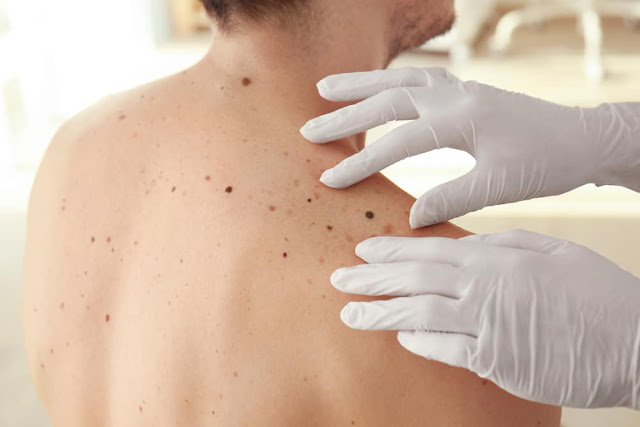Does Skin Cancer Destructive Decline In The Family?
Read Also
Cancer is one of the most life-threatening health problems. One of the causes is genetic or hereditary. Yes, when there is one family member affected by cancer, you may be at greater risk of getting the same cancer. However, does this also apply to skin cancer melanoma? Here's the explanation.
Overview of skin cancer melanoma
Cancer occurs when normal cells in the body develop abnormally and uncontrollably. Well, this can also happen to skin cells.Melanoma is one type of skin cancer that arises when melanocyte cells (pigment-producing cells) grow abnormally into cancer. This is characterized by the appearance of the mole of a sudden cancer feature, usually brown or darker than the surrounding skin color.
Although quite rare, melanoma skin cancers spread faster and cause serious problems in other organs. Whether in women or men, melanoma occurs most often in the neck, face, chest, back, even in the eye (ocular melanoma).
The main cause of the appearance of melanoma is excessive exposure to sunlight on the skin. However, it is also determined by the skin type of each person. The risk factor for skin cancer melanoma will increase in people who are white and have light original hair. This is why, skin cancer is more common in white offspring (race caukasian).
So, can melanoma skin cancer be inherited in the family?
Reported by Verywell, experts are still investigating the effect of genes from the family on the incidence of melanoma. So far, they reveal that genetic factors account for only one percent of all melanoma cases.There are three genes that are known to be associated with melanoma skin cancer, including the following:
- CDKN2A: The CDKN2A gene is the most common cause of inherited skin cancer melanoma in the family. This gene causes familial atypical mole-melanoma syndrome (FAM-M) or cancer of a derived melanoma. However, not all cases of melanoma are caused by CDKN2A gene mutations.
- MC1R: A number of studies have proven that the MC1R gene (melanocortin-1 receptor) may increase the risk of melanoma. It is this gene that causes a person to have red hair, brightly colored skin, and a skin that is sensitive to UV irradiation.
- MDM2: MDM2 gene serves to determine how much cell division is due to cancer. Mutation of MDM2 Genes is more common in women with melanoma skin cancer age 50 and under. In fact, these gene mutations are more likely to develop melanoma than sun exposure.
Thus, it can be concluded that melanoma can be caused by hereditary factors that have genes that cause melanoma. It certainly can not be prevented by any means, except with treatment as soon as possible.
Should a genetic test to know the risk of melanoma cancer?
After knowing one family member is exposed to melanoma, you certainly do not want to get the same disease and immediately seek prevention efforts. For starters, you may be wondering if you need a genetic test or not.Genetic testing serves to find out how much of a change in genes in the body that can increase the risk of certain diseases, including melanoma. A genetic test for melanoma is highly recommended when you:
- Has three or more melanoma cancers that grow on the surface of the skin
- Has many suspicious moles, irregular shapes, and dark brown or black
- Have two or more family members with melanoma or pancreatic cancer
The results of a positive melanoma genetic test can help doctors monitor the development of skin cancer in your body. Patients at high risk of melanoma necessarily require further skin examination to confirm the diagnosis.
However, if the test results are negative, you can not necessarily feel free from melanoma. To reduce the risk of skin cancer melanoma, protect your skin from excessive sun exposure and do regular skin health checks.
How do you think about Does Skin Cancer Destructive Decline In The Family?. Write your opinion in the comment field.

0 Response to "Does Skin Cancer Destructive Decline In The Family?"
Post a Comment